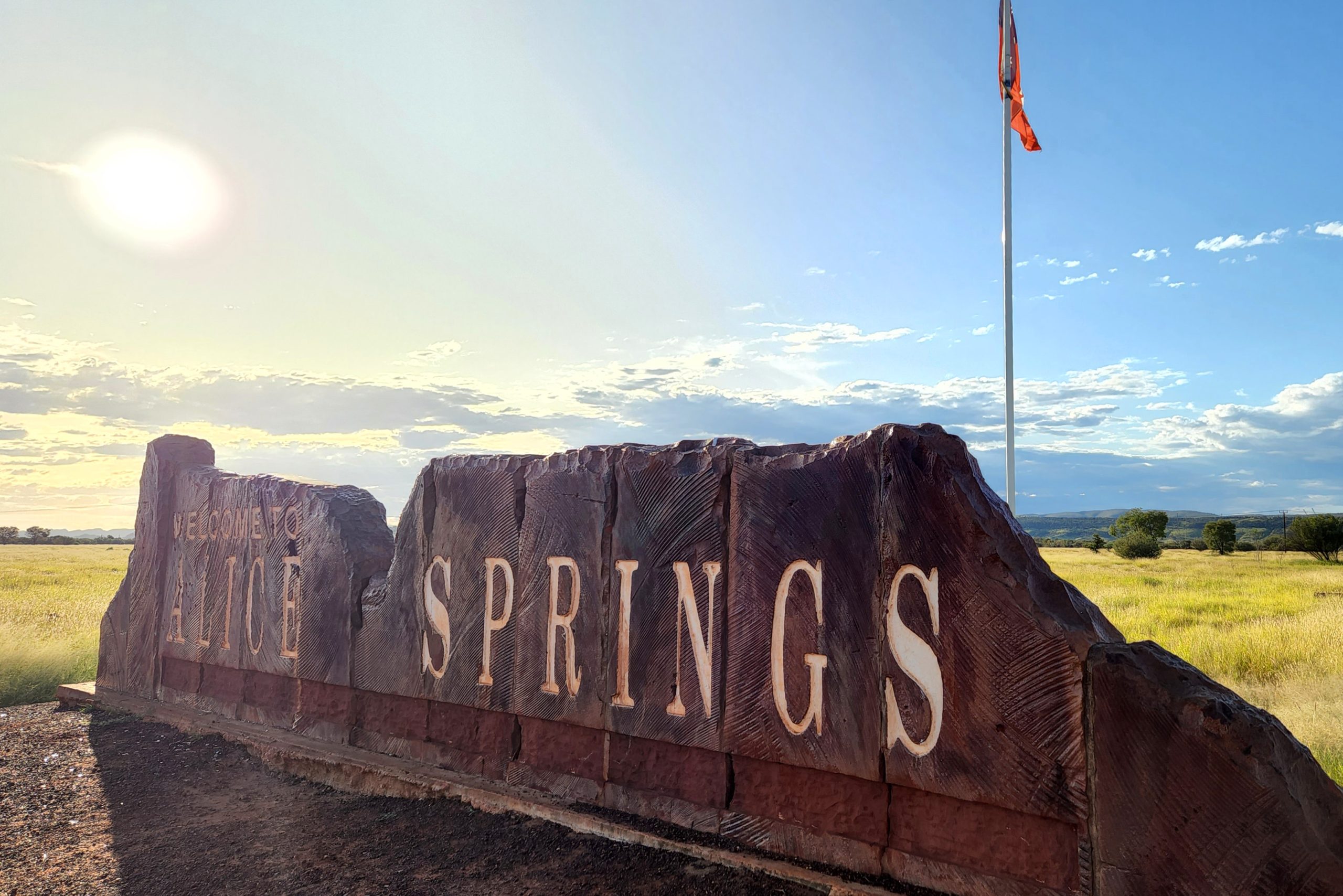
We mark the anniversary of the meeting of Pope John Paul II with Aboriginal and Torres Strait Islander peoples in Alice Springs, Northern Territory on 2 December. Sr Joan shares a reflection.
Thirty-six years have passed since Pope John Paul II stood in the swirling red dust on the outskirts of Alice Springs and spoke to a delighted group of Aboriginal women, men and children. He was wearing aboriginal colours. He affirmed their culture and spirituality. He knew their pain. The Pope told a parable of a tree ablaze in the bushfires, leaves scorched, bark seared and burned while inside the sap still flowed and the roots held strong. He told these people that the ‘genius and dignity’ of their race must never disappear. They understood.
This Pope acknowledged that his listeners had never surrendered their land, that what must be done to remedy the deeds of yesterday must not be put off till tomorrow. He called for ‘just and mutually recognised agreements’. He understood that ‘country’, and the reverence towards all its creatures was a vital part of their spiritual tradition.
The most often quoted words from Pope John Paul II in Alice Springs are:
“We cannot live in the past but the past lives in us”, wrote the poet, Oodgeroo Noonuccal. “The hour has come”, said John Paul II before he left Alice Springs. But recognising the rightful place of the First Peoples has been a long and difficult struggle.
Five years ago, a Statement from the Heart was proclaimed at dusk on the red earth of Uluru. It was a moment rare in the history of colonisation anywhere in the world, an invitation to all Australians to receive the spiritual and cultural heritage of our shared land. It is, I believe, an opportunity to achieve the identity and unity that our nation needs.
Words in the Uluru Statement are a call to unity. ‘‘Our sovereignty is a spiritual notion: the ancestral tie between the land, or ‘mother nature’, and the Aboriginal and Torres Strait Islander peoples… we believe this ancient sovereignty can shine through as a fuller expression of Australia’s nationhood.”
This Statement called for recognition of the First Nations through a Voice to Parliament enshrined in the Australian Constitutions. A bi-partisan group has worked on ‘next steps’ in the years since it was presented. They concluded that indeed it should be put to the people of Australia in referendum; the Prime Minister intends that this should happen soon.
We wait for the wording and the date.
On 19 November this year, the Uluru Statement from the Heart was awarded the 2021-22 Sydney Peace Prize. Aunty Pat Anderson, Alyawarre woman, Professor Megan Davis, Cobble Cobble woman, and Lawyer Noel Pearson Bagaarrmugu, Guggu Yalanji man, accepted this peacemaker award. The interviews and speeches emphasise a coming together after struggles. A distinctive but not separate place for First Peoples of Australia has the potential to peacefully weave together the First Nations heritage learned from ‘country’ during more than 60,000 years, with the British institutions of law/governance/language and with the diversity of multi-cultural migration.
The Australian people will have the chance to endorse this. All Australians over the age of eighteen years will be called to vote.
The time has come.
Joan Healy rsj
Vic-Tas Region
